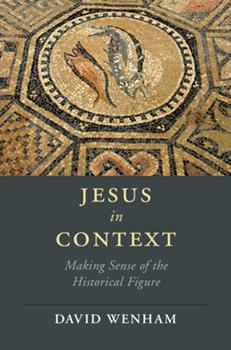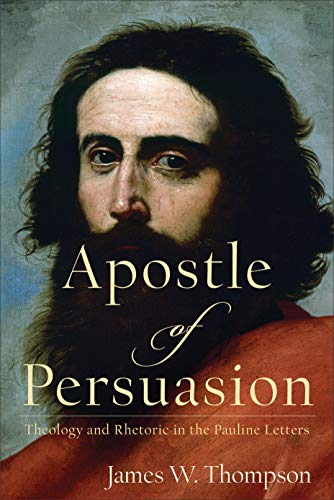
RECENT QUERIES ABOUT THE MARYS
One of the real problems in early Christian history was the tendency to blend people with similar or the same names together, as if they were all the same person. We have this problem with assuming John Zebedee is the same person as John the elder who in turn is also the same person as John the seer who was in exile on Patmos. In fact, there were at least two if not three different persons involved, as Papias’s comments made clear who says he met John the elder, but not John the original apostle.
This same problem has arisen notoriously with Mary Magdalene, who was assumed to be the same person as the anonymous sinner woman mentioned in Luke 7, and sometimes also assumed to be the same person as the Mary of Mary and Martha fame mentioned in Luke 10 and John 11. A part of this tendency has recently been resurrected by the research of Elizabeth Schrader who has done her doctoral work at Duke University (and see also the recent JBL article by Joan Taylor and Elizabeth Schrader. “The Meaning of Magdalene. A Review of Literary Evidence”, SBL 140.4. The problem is, this study does not properly engage with the non-Christian early Jewish evidence, and the proper archaeological evidence at Migdal which has been and is being dug as we speak).
In this particular post I want to deal with certain assumptions that are undergirding some of this lets blend together the Marys speculation (and speculation it is). The first point has to do with textual criticism. There has in the guild been an increasing tendency to suggest that there is considerable ‘elasticity’ or flexibility, when it comes to the issue of textual variants. Now Schrader quite rightly admits that most textual variants are innocuous, of no real historical or theological import. But some are not. I underline the word some. This is true. It is also true that we have very few manuscripts that we can securely date to the 2nd century A.D.
Nevertheless, one of the tendencies that has surfaced in the wake of all the Nag Hammadi materials and the rise of interest in ‘Gnostic’ Gospel texts in recent decades is a serious failure to consider the source of the documents. The question that should be asked is do these documents come from proto-orthodox sources which are the mainstream of early Christianity, or do they come from heterodox sources like the numerous Gnostic texts. The failure to consider seriously the source of the material is a serious failure indeed, and it has led to all sorts of historical mistakes—for instance the assumption that Jesus was likely married to Mary Magdalene, or that Mary Magdalene was the beloved disciple (when John 11.3 is perfectly clear that it is Mary of Bethany’s brother, Lazarus who is the one called ‘the one whom Jesus loved’ and there are no textual variants for that verse that might lead us to think otherwise). I could say much more about synthetic tendencies and their problems, and problematic readings of textual variants without considering where they came from, but I need to move on to another problem.
This particular problem has to do with the misreading of Luke 10, and the famous story of Jesus’ visit to Mary and Martha’s house. First of all, this story is in Luke’s famous journeying to Jerusalem chronicle that encompasses part of Luke 9 all the way to Luke 19. It is a repeated motif in this material that he is journeying up to Jerusalem, and various things are placed in those almost 10 chapters that are not in chronological order. In the case of Luke 10 itself, the theme of what it means to be a good disciple of Jesus, and also how to act as a loving neighbor are the most obvious themes. We are not told in Luke 10 where the village is that Jesus visited with Mary and Martha but we certainly cannot conclude it must be in Galilee because it is part of a literary creation and sequence of texts that is part of the journeying up to Jerusalem motif. Luke is more concerned with a theological ordering than a chronological ordering of materials in Luke 9-19. Secondly, the attempt to distinguish the Mary and Martha in Luke 10 from the Mary and Martha of John 11 simply falls flat, because in both cases the personal characterization of these two women is too similar in these two texts to ignore. Thirdly, it is simply not the case that because we are told in Luke 10 that the house in question is Martha’s house that this must mean its not Simon the Leper’s house or Lazarus’ house. This is an argument from silence, not an argument from substance. If Martha is in fact the homemaker for her siblings, say as the older sister, and if Simon the Leper has passed away, there is no reason why the home could not be said to be her home. The focus is after all on the relationship of Jesus with these two sisters, just as it is in John 11.
Then there are the assumptions about Mary Magdalene that surface in this kind of approach. She is now being called Mary the Tower, as if Magdalena were a personal attribute of Mary herself. I’m sorry, but this ignores altogether that the town Luke is referring to is a real Galilean town called Migdal, which does indeed mean tower. It’s the town, not the person that Luke is referring to. Here I would refer all the readers to Richard Bauckham’s very careful study of Migdal including names and nomenclatures in his work entitled Magdala of Galilee. A Jewish City of the Hellenistic and Roman Period and also his study entitled Gospel Women. The careful historical work that went into these two studies simply can’t be ignored or dismissed, and they lead to the conclusion that Mary from Migdal/Magdala not Mary the Tower is the correct reading of the data. She is a Galilean disciple, out of whom Jesus exorcised some demons, and her name always comes first in the list of female disciples from Galilee. This is surely NOT the same person as the Mary in Luke 10 or John 11.
I could say much more about all this (see my Women in the Ministry of Jesus), but this must suffice. Curiosity and historical conjecture are of course important parts of analyzing the incomplete data of the New Testament, especially because of all the aporia. One must keep an open mind about traditional assumptions. But at the end of the day, there are usually very good reasons to reject speculations that the vast majority of scholars have not and do not now entertain, for good reasons. The newest is not always the truest and the latest is not always the greatest when it comes to the analysis of the NT and its texts and textual variants.
One of the real problems in early Christian history was the tendency to blend people with similar or the same names together, as if they were all the same person. We have this problem with assuming John Zebedee is the same person as John the elder who in turn is also the same person as John the seer who was in exile on Patmos. In fact, there were at least two if not three different persons involved, as Papias’s comments made clear who says he met John the elder, but not John the original apostle.
This same problem has arisen notoriously with Mary Magdalene, who was assumed to be the same person as the anonymous sinner woman mentioned in Luke 7, and sometimes also assumed to be the same person as the Mary of Mary and Martha fame mentioned in Luke 10 and John 11. A part of this tendency has recently been resurrected by the research of Elizabeth Schrader who has done her doctoral work at Duke University (and see also the recent JBL article by Joan Taylor and Elizabeth Schrader. “The Meaning of Magdalene. A Review of Literary Evidence”, SBL 140.4. The problem is, this study does not properly engage with the non-Christian early Jewish evidence, and the proper archaeological evidence at Migdal which has been and is being dug as we speak).
In this particular post I want to deal with certain assumptions that are undergirding some of this speculation (and speculation it is). The first point has to do with textual criticism. There has in the guild been an increasing tendency to suggest that there is considerable ‘elasticity’ or flexibility, when it comes to the issue of textual variants. Now Schrader quite rightly admits that most textual variants are innocuous, of no real historical or theological import. But some are not. I underline the word some. This is true. It is also true that we have very few manuscripts that we can securely date to the 2nd century A.D. Nevertheless, one of the tendencies that has surfaced in the wake of all the Nag Hammadi materials and the rise of interest in ‘Gnostic’ texts in recent decades is a serious failure to consider the source of the documents. The question that should be asked do these documents come from proto-orthodox sources which are the mainstream of early Christianity, or do they come from heterodox sources like the numerous Gnostic texts. The failure to consider seriously the source of the material is a serious failure indeed, and it has led to all sorts of historical mistakes—for instance the assumption that Jesus was likely married to Mary Magdalene, or that Mary Magdalene was the beloved disciple (when John 11.3 is perfectly clear that it is Mary of Bethany’s brother, Lazarus who is the one called ‘the one whom Jesus loved’ (and there are no textual variants for that verse that might lead us to think otherwise). I could say much more about synthetic tendencies and their problems, and problematic readings of textual variants without considering where they came from, but I need to move on to another problem.
This particular problem has to do with the misreading of Luke 10, and the famous story of Jesus’ visit to Mary and Martha’s house. First of all, this story is in Luke’s famous journeying to Jerusalem chronicle that encompasses part of Luke 9 all the way to Luke 19. It is a repeated motif in this material, and various things are placed in those almost 10 chapters that are not in chronological order. In the case of Luke 10 itself, the theme of what it means to be a good disciple of Jesus, and also how to act as a loving neighbor are the most obvious themes. We are not told in Luke 10 where the village is that Jesus visited with Mary and Martha but we certainly cannot conclude it must be in Galilee because it is part of a literary creation and sequence of texts that is part of the journeying up to Jerusalem motif. Luke is more concerned with a theological ordering than a chronological ordering of materials in Luke 9-19. Secondly, the attempt to distinguish the Mary and Martha in Luke 10 from the Mary and Martha of John 11 simply falls flat, because in both cases the personal characterization of these two women is too similar in these two texts to ignore. Thirdly, it is simply not the case that because we are told in Luke 10 that the house in question is Martha’s house that this must mean its not Simon the Leper’s house or Lazarus’ house. This is an argument from silence, not an argument from substance. If Martha is in fact the homemaker for her siblings, say as the older sister, and if Simon the Leper has passed away, there is no reason why the home could not be said to be her home. The focus is after all on the relationship of Jesus with these two sisters, just as it is in John 11.
Then there are the assumptions about Mary Magdalene that surface in this kind of approach. She is now being called Mary the Tower, as if Magdalena were a personal attribute of Mary herself. I’m sorry, but this ignores altogether that the town Luke is referring to is a real Galilean town called Migdal, which does indeed mean tower. It’s the town, not the person that Luke is referring to. Here I would refer all the readers to Richard Bauckham’s very careful study of Migdal including names and nomenclatures in his work entitled Magdala of Galilee. A Jewish City of the Hellenistic and Roman Period and also his study entitled Gospel Women. The careful historical work that went into these two studies simply can’t be ignored or dismissed, and they lead to the conclusion that Mary from Migdal/Magdala not Mary the Tower is correct reading of the data. She is a Galilean disciple, out of whom Jesus exorcised some demons, and her name always comes first in the list of female disciples from Galilee. This is surely not the same person as the Mary in Luke 10 or John 11.
I could say much more about all this (see my Women in the Ministry of Jesus), but this must suffice. Curiosity and historical conjecture are of course important parts of analyzing the incomplete data of the New Testament, especially because of all the aporia. One must keep an open mind about traditional assumptions. But at the end of the day, there are usually very good reasons to reject speculations that the vast majority of scholars have not and do not now entertain, for good reasons. The newest is not always the truest and the latest is not always the greatest when it comes to the analysis of the NT and its texts and textual variants.


































